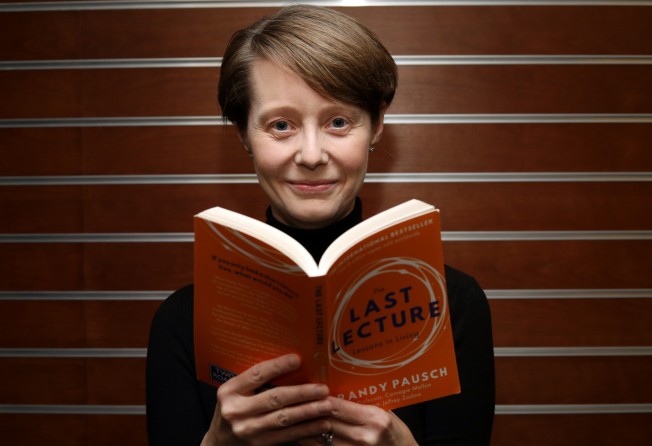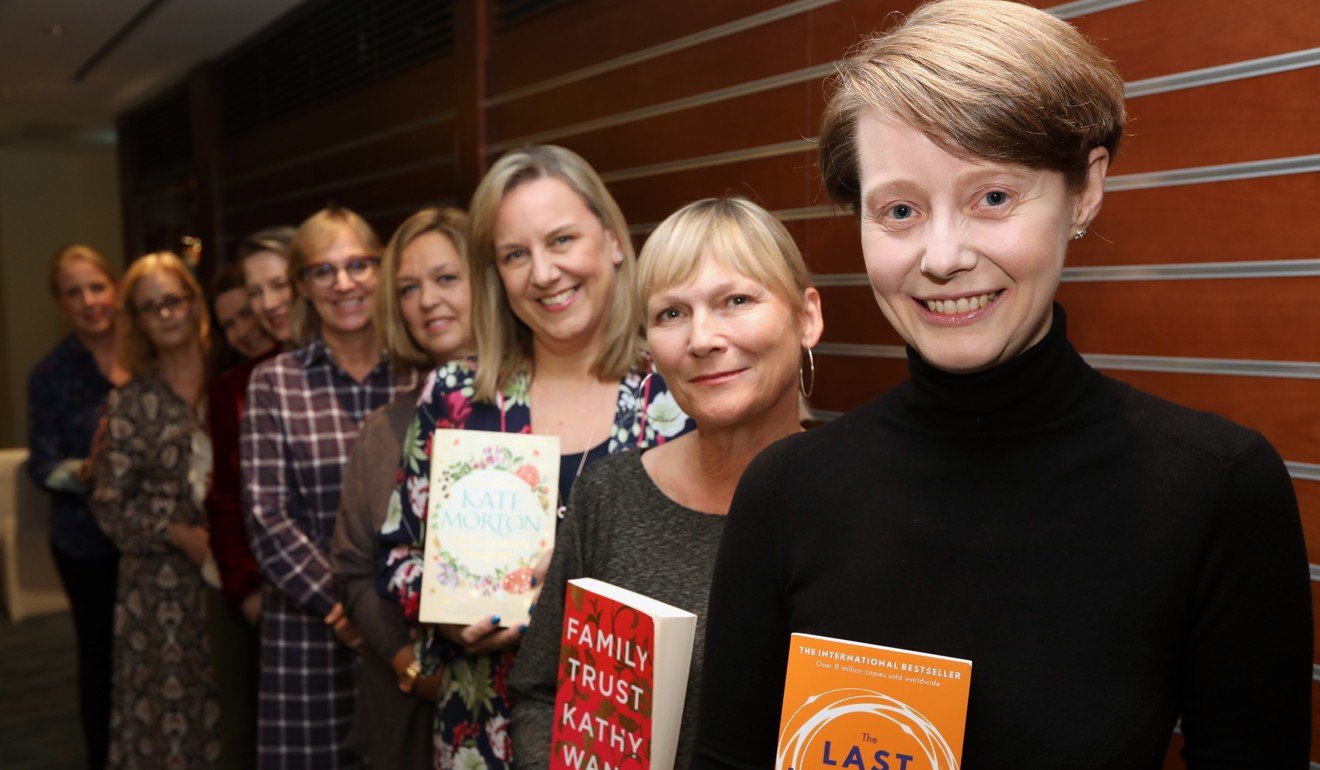
How reading can make you happier and less stressed and depressed
- Research by the University of Liverpool found that those who read regularly had higher levels of self-esteem and were better at coping with challenges
- It is not just a solo activity. Book clubs are an excellent way to meet new people, express your opinions and share your love of books with others

Clare Drummond looks forward to her Ladies’ Circle Hong Kong Book Club meetings. Once a month, the group gathers to discuss specific works that they have read. Drummond loves these meetings because they’re a chance for her to share her biggest passion: reading.
“I’ve been an avid reader since I was a child,” says Drummond, who is originally from the UK and has lived in Hong Kong for about seven years. “I read every day and get through one book a week. I like fiction and books that are based on facts, like biographies and autobiographies. I love the feeling of escapism that comes from losing myself in someone else’s story.”
Reading might feel boring or like a chore to some people, but Drummond calls it her “wellness ritual” because it improves her mood. She is not wrong – a host of studies in recent years have found that reading could actually make you happier.
In one study done by the University of Liverpool in the UK, for instance, researchers surveyed more than 4,000 adults and found that those who read regularly were less stressed and less depressed, had higher levels of self-esteem, and were better able to cope with challenges.
According to the report, which was released in 2015, readers said that the best tonic for a low mood or anxiety was reading a book. In fact, they preferred reading to taking a head-clearing walk, having a sympathetic chat with friends or watching TV.
The report’s lead researcher, Dr Josie Billington from the Centre for Research into Reading, Literature and Society at the University of Liverpool, says that reading reminds people of activities or occupations they once pursued, or knowledge and skills they still possess, helping to restore their sense of having a place and purpose in the world.

Reading helps people realise that they are not alone when it comes to dealing with problems – when they read a book whose characters are going through similar difficulties, they are able to identify with those characters and so tend to feel better about their own lives. And then there is that sense of accomplishment, pride and self-worth that regular readers say they feel after finishing a book or even starting a book after not having read for a long time.
It also provides a kind of mentally and emotionally engaged relaxation, and takes your mind off any personal anxieties you may be experiencing. A 2009 study by the University of Sussex in the UK discovered that reading for just six minutes could reduce your heart rate, minimise muscle tension, and reduce stress levels by up to 68 per cent – even more than other stress-reduction methods such as listening to music or going for a walk.
Study co-author and cognitive neuropsychologist Dr David Lewis says that it does not matter what book you read. “By losing yourself in a thoroughly engrossing book you can escape from the worries and stresses of the everyday world.”

Drummond believes that her life would be very different if she was not a regular reader.
“It’s certainly expanded my world and enriched my life in that it has increased my vocabulary and knowledge, but it also puts me in a happy and relaxed state because it helps me ‘switch off’, step back and gain a new perspective,” she explains. “Not only that, I sometimes get emotionally attached to the characters, and if they feel joy I feel joy, too. So I love how I feel when I get stuck in a good book – it transports me to a whole different world.”
Anthea Lung, a school guidance counsellor who lives on Hong Kong Island, says that when she is reading, everything around her seems to fade away. She describes the pleasure she gets from reading as “addictive”. “Once you’ve experienced that feeling, you can’t help but search for it, again and again.”
Lung remembers a time when she was barely reading. Compared to those few years, she says that her life now feels a lot more fulfilling.
“I’m definitely a better person – reading has opened my mind to new experiences and helped me find clarity. When life feels overwhelming, reading is my respite; when I read, I’m no longer dwelling on life but focusing on the pages in front of me. And when I’m ready to face life again, I find that I do so with a renewed purpose and perspective.”
And they do not call it “bibliotherapy” for nothing. During and after the first world war, between the years 1917 and 1920, the United States’ Library War Service, created by the Library of Congress and the American Library Association, collected more than 700 million books and magazines and distributed them to American troops at home and abroad.
The books were sent to camp libraries, military hospitals and other relief stations in the belief that reading could help sick and wounded troops heal from the traumas of war. The Library War Service even established librarians in military hospitals to help doctors and nurses “prescribe” books to their military patients. The librarians observed that reading calmed the troops who had just returned from the battlefront and put them on the road to emotional recovery.

Another way that reading may boost your mood is that it can decrease feelings of loneliness and make you feel more socially connected.
You may think of reading as a solo activity, but it can be social, too. Book clubs, like the one Drummond belongs to, for example, meet regularly to discuss specific books. This is an excellent way to meet new people, express your opinions, and share your love of books with others.
The Silent Book Club (SBC) offers something different. It normally meets once a month in a public place like a park, cafe or restaurant, and advocates for reading what you want, so it’s perfect for people who do not like assigned reading or book discussions.
SBC originated in the United States in 2012 and currently has 50 chapters all over the world – the Hong Kong chapter was established in September 2018. Lung, who organises the SBC gatherings in Hong Kong, says that besides the chance to meet new people and get reading recommendations, the gatherings give members one quiet hour during which they can just read and relax, something that many of them feel is impossible in a crowded and noisy city like Hong Kong.

After this reading hour, members are free to stick around and chat with one another.
“It’s hard to say if our members will end up being lifelong friends, since the group is still new, but they certainly get to meet and chat with like-minded folks,” Lung says. “It does not matter what they’re reading or how recently they’ve joined, we are friendly towards and accepting of everyone.”